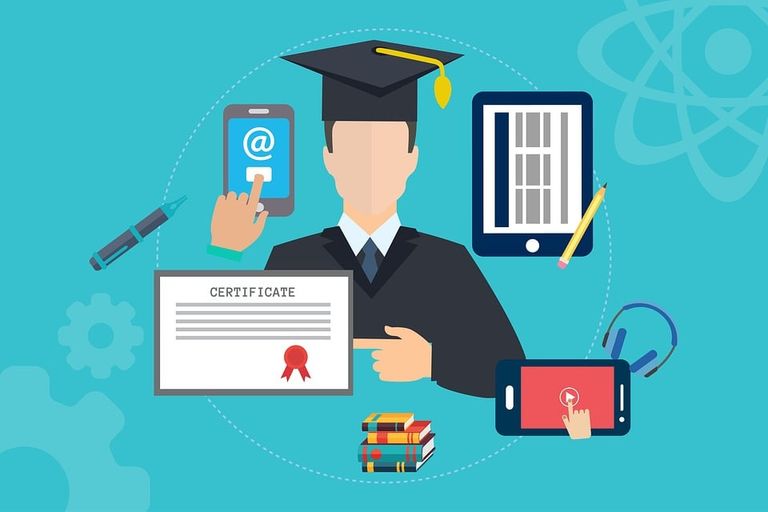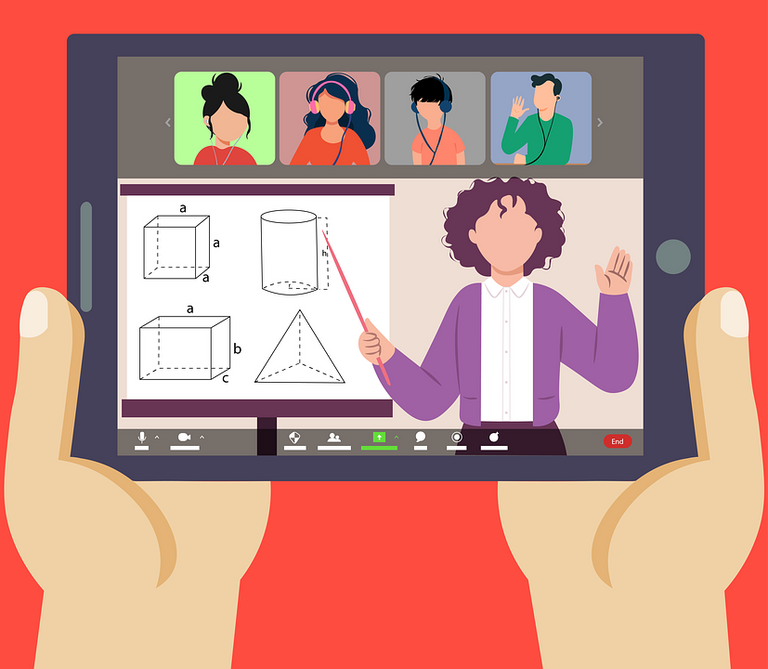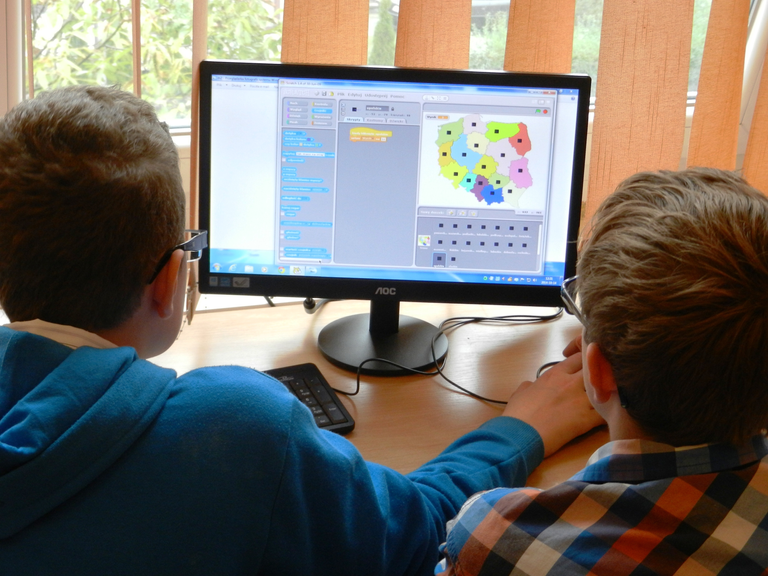Conscious or not, we are in the midst of a technological revolution; incredible advances in the capacity of computers, big data, blockchain, and the development of artificial intelligence are making big changes in the labor market, so the skills required in people to enter the labor market are different today than a few years ago, being more specific and going beyond what is taught in traditional schools.
So we must ask ourselves, how should we prepare future generations? What skills will people need to compete in the labor market?

The new generations need ways of learning that are more appropriate to their context. Image credit: pixabay.com.
It is not an easy question to answer, but technology is undoubtedly the key to transforming learning.
##21st-century skills
Perhaps we can realize that the tools we have available today at our fingertips on our cell phones alone were unthinkable a few decades ago, our children are practically digital natives, while we adults have a hard time keeping up with every advance. This makes it evident that more skills are needed to actively participate in the XXI century society. Some of the ones we can mention are:
- Traditional content knowledge and global issues. Traditional academic content knowledge such as mathematics, literature, and science will continue to be important but should be accompanied or used to understand and create greater awareness of global issues such as climate change, modern societal problems, and health.
- Adaptation and innovation. If the current pandemic context has taught us anything, it is that uncertainty is a reality that we must keep in mind. Both in the workplace and in everyday life, we navigate in increasingly changing and complex environments, where we cannot take anything for granted. That is why skills such as critical thinking, communication, innovation, and adaptation to change are essential.
- Digital skills. We already live in a digital society, where new technologies abound and information is shared quickly. Therefore, we will need to develop the ability to properly use technology and digital media, to keep our information safe and make responsible use of these media; likewise, the ability to create digital content will be essential for entrepreneurship, we must be able to effectively use digital tools to excel in digital media or create new opportunities.

technology has changed our world, so it must also change how we learn from it. Image credit: pixabay.com.
So, it is necessary to transform learning
The current system of learning in formal schools is far from educating future generations in the development of these skills. Our system was conceived in another era and in many respects seems to be resistant to change, facilitates learning by rote and passive reception of knowledge, and places more excellent value on results than on processes, so that students often do not feel the need to exploit their inventiveness and creativity.
Therefore, in order to educate future generations, a paradigm shift is necessary, where the student is prioritized and linked to its context, some characteristics that the new learning system should consider are:
- Competency-based: where each student can learn at his or her own pace and is only promoted when he or she reaches the objective of the subject and not just a numerical grade that often does not demonstrate what has been learned. In this scheme, the teacher goes from being an instructor who expects everyone to know in the same way to a facilitator or coach.
- Active and contextualized: the student must be an active participant, either virtually or in-person, forming work teams and associating learning with phenomena and activities in their environment, ceasing to be just a passive listener in a classroom and then working alone at home.
- Open: learning can take place at any time or place, there are many ways to evaluate the progress and/or competencies of the student, therefore it should no longer be an exclusive process of a classroom.

New generations need a more open and contextualized educational process. Image credit: pxhere.com.
Given these aspects, it is evident that the same technology that is driving them must play a fundamental role in their transformation, mainly because technology is increasingly present in our lives and the jobs of the future will depend much more on it, in addition, it is only through technology that people can develop their skills with digital tools. On the other hand, our children are growing up surrounded by technology, and it is even logical to think that technology should be part of their educational context.